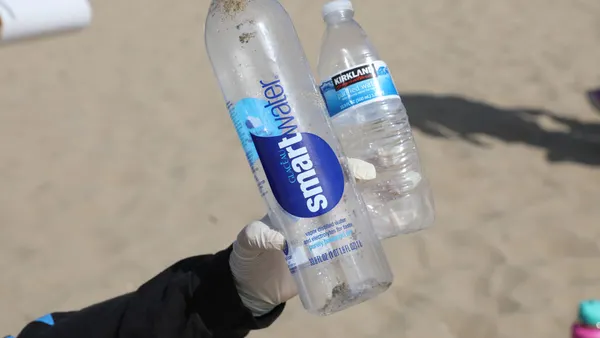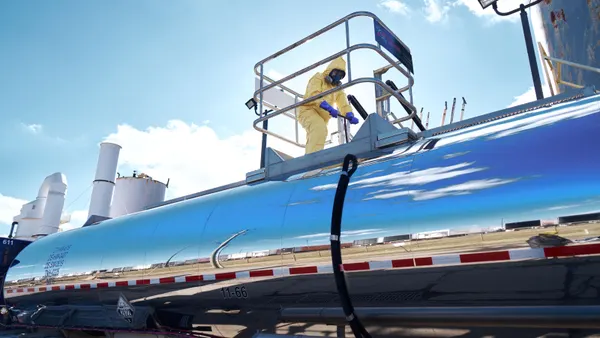Dive Brief:
- A new case study from the Closed Loop Fund details how Scott County, IA saw a 61% increase in recycling volumes after upgrading to a single-stream material recovery facility and collection system last year. The $10.75 million project was funded by a $2.7 million loan from Closed Loop and municipal bonds.
- The Waste Commission of Scott County now provides 95-gallon single-stream carts with RFID chips to 48,500 households. The commission can handle up to 70 tons per day at its upgraded MRF, as compared to 27 tons before, and expects to process 16,500 tons during the first year of operation.
- Rather than charging a flat $15 per ton tip fee, the MRF now splits revenue with haulers evenly. During the first six months haulers received an average of $13 per ton after processing fees. The county is also projecting sizable savings from landfill diversion and has created additional jobs at the facility.
Dive Insight:
As described in the case study, the county's recycling equipment was aging and even though participation rates were high, a lot of material still wasn't being captured by a dual-stream system of bins and carts. Because the program was largely funded by user fees they also didn't want to pass the costs of a new system on to residents. Though after studying a range of options, including exporting the material or contracting out operation of the MRF, the county found a financial case to be made for this new approach.
Additional details on how the MRF has since picked up new recycling business in the area, found a new market for glass and increased resident engagement are all useful guidelines for other counties or municipalities considering a similar move. The county commission also found success in enlisting volunteers to become recycling "ambassadors" that could help spread education about the new system, similar to programs seen in other cities.
Three years after it launched, the Closed Loop Fund has made notable progress toward its goal of investing $100 million in recycling projects and is beginning to see results around the country. At a time when the need for infrastructure is well-known, but funding isn't always available, groups such as Closed Loop and The Recycling Partnership are playing a larger role in launching modern recycling systems.











